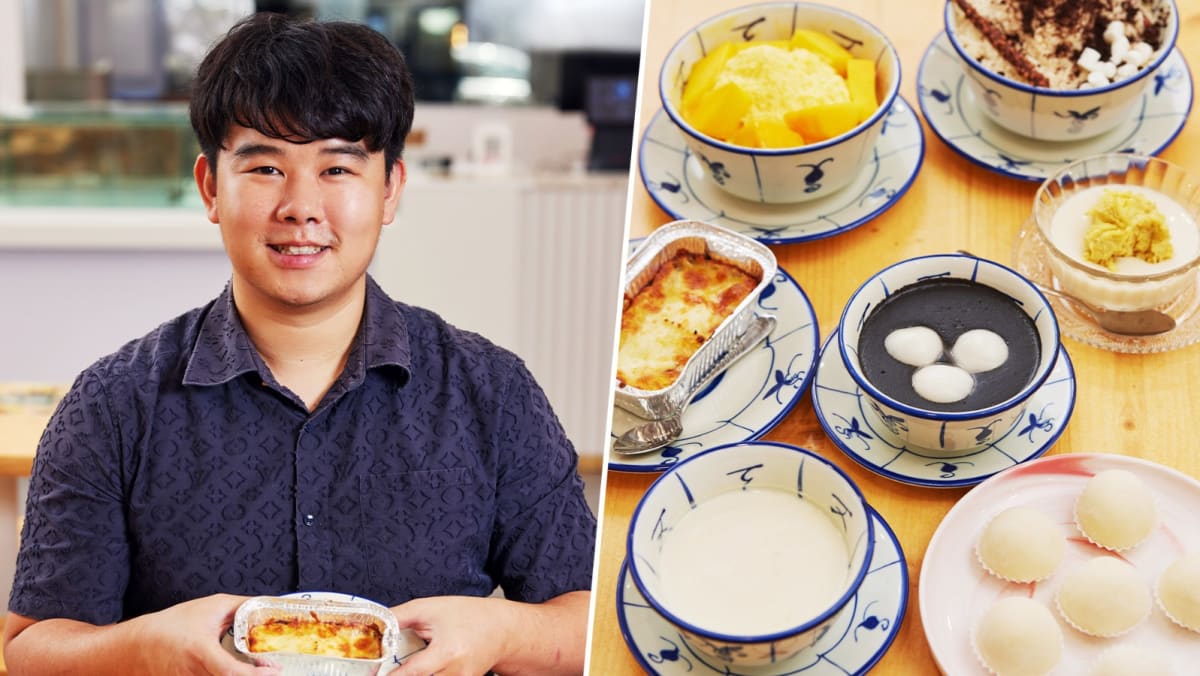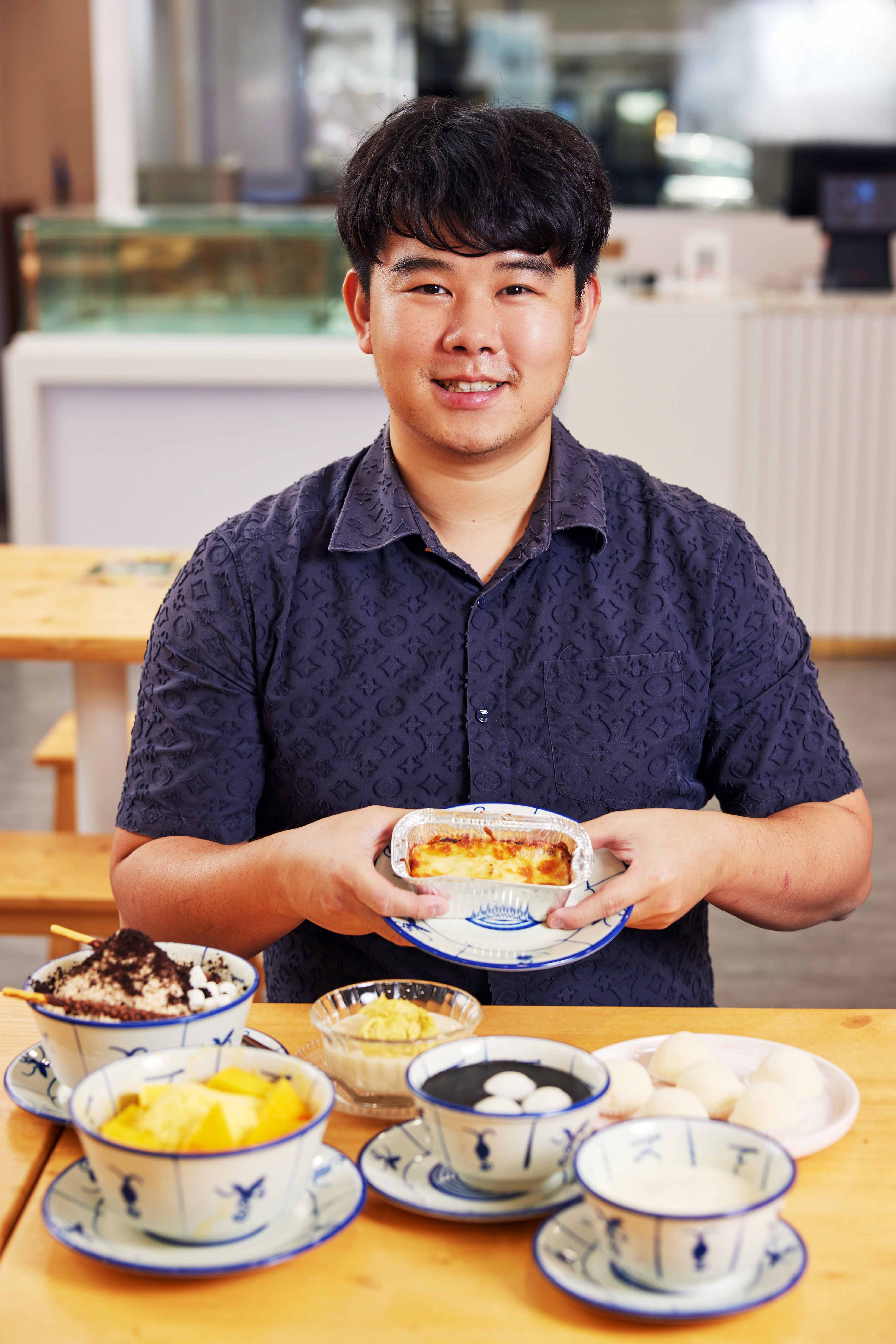
Invested $250K into dessert biz
Tang Ren Jie Desserts is set up by Clement Tan, 30. The millennial started off as a durian wholesaler in 2021, but decided to pivot to opening a desserts joint instead. He invested around $250K to open this shop.

“The main idea was to sell durians, but I was thinking, what am I going to do when there are no durians? Since durians aren’t available all year round, I thought of opening Tang Ren Jie as the biz can be sustainable throughout the year,” he says.
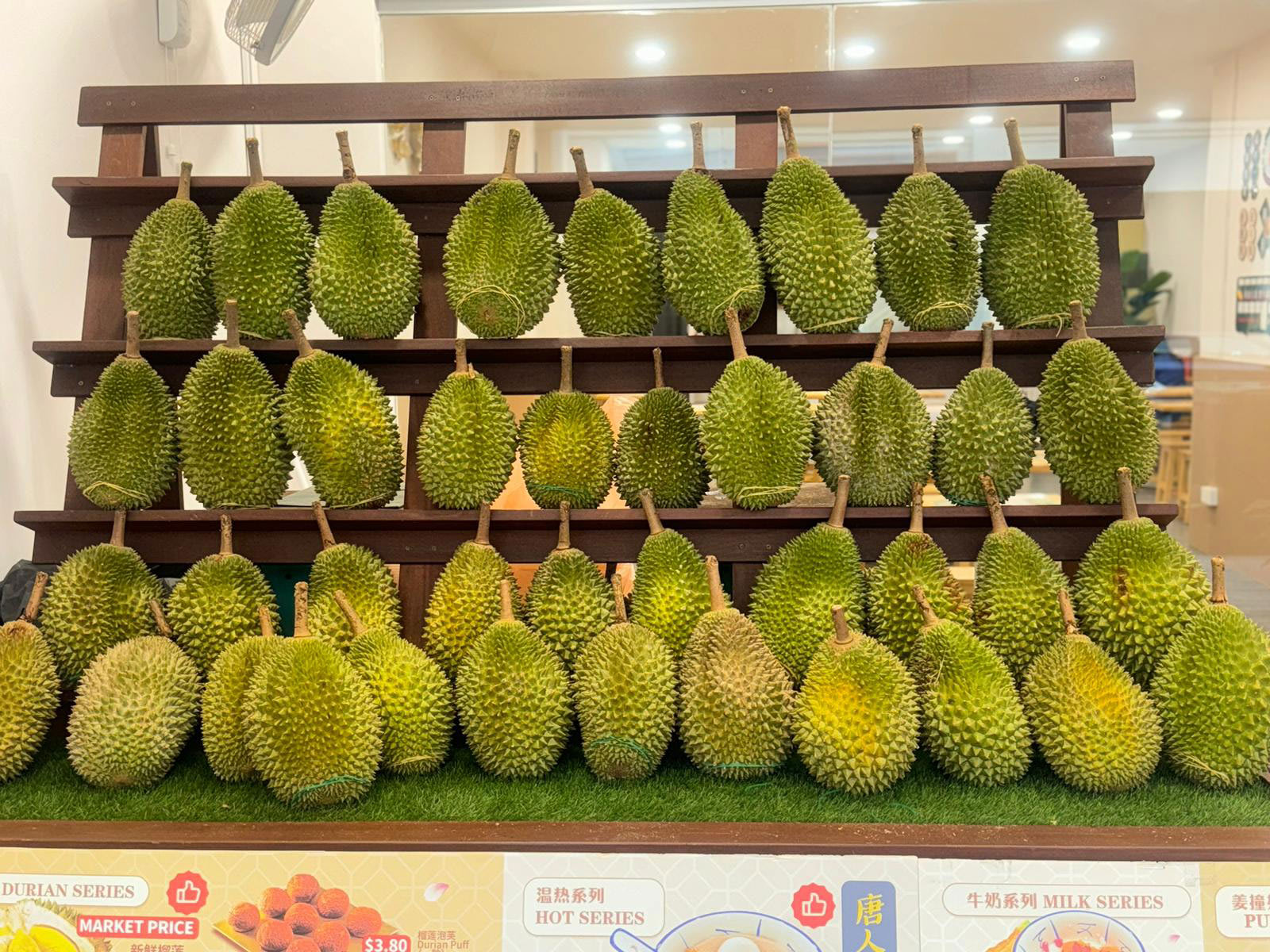
His family owns over 50 durian plantations in Malaysia
Tang Ren Jie’s durians are shipped fresh from the 50 plus plantations that Clement’s family own across the border. The plantations are mostly located in Pahang and Tangkak in Johor, with an average of 32 trees per acre, though the size of each plot of land varies. The durians are all Mao Shan Wang grade, and used in a few of the desserts at the shop here. When they are in season, like now, racks of the whole fruit are displayed outside the shop. You can purchase some and enjoy it in-store.
Clement’s dad owns his family’s plantations – his father first started purchasing plots of land to grow durians back in the ’80s. The millennial isn’t actively involved in the family biz currently, and is focusing on his dessert shop, which he is the sole owner of.
The towkay tells us that it’s hard to determine how many durians the plantations produce on average, as it varies depending on the weather conditions each year. However, he says that most of their harvest is supplied to wholesalers in Malaysia. “There’s a wholesale market in Malaysia – once we have our durians, we send it over to the market and many people will buy it immediately. And these are the exporters, who will send our durians to countries like Singapore and China, so we don’t have to find our own customer base overseas,” Clement explains.
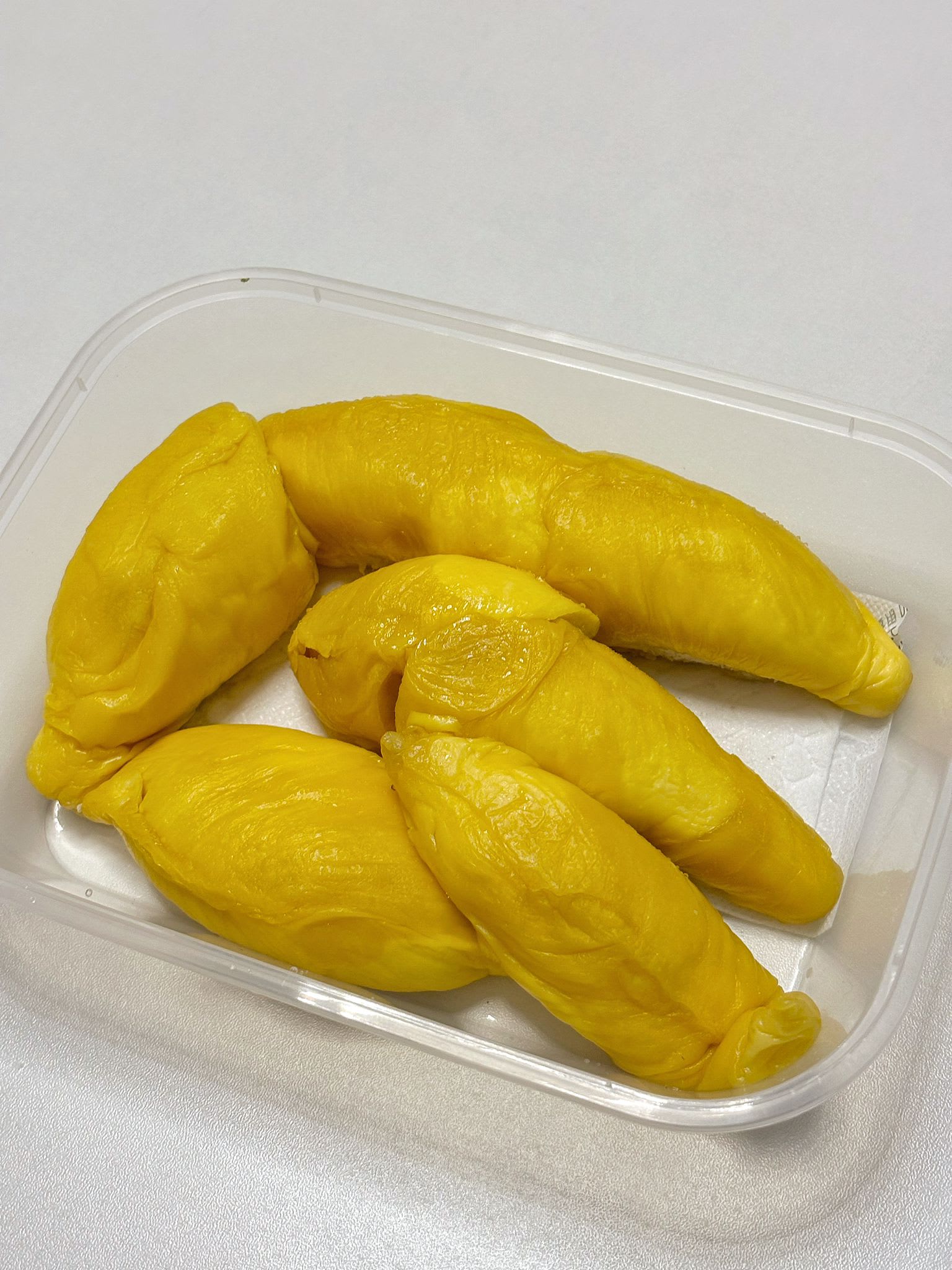
MSW season starts now
Mao Shan Wang durian season has just kicked off and will run until sometime in October, says Clement. So you can feast on fresh MSW durians from Clement’s family farms in Pahang in-store at his Mosque Street eatery now. He also tells us that they have a ‘bao jiak’ policy, where they’ll replace any durians that customers aren’t satisfied with for free. The A-grade MSW durians currently go for $28 per kilo, and a 450g box of de-shelled fruit costs $46. We tried some – it’s rich and custardy, with flesh that lifts easily off the small seeds. It has the quintessential pong that we love in MSW durians, coupled with adequate bitterness tempered with some sweetness.
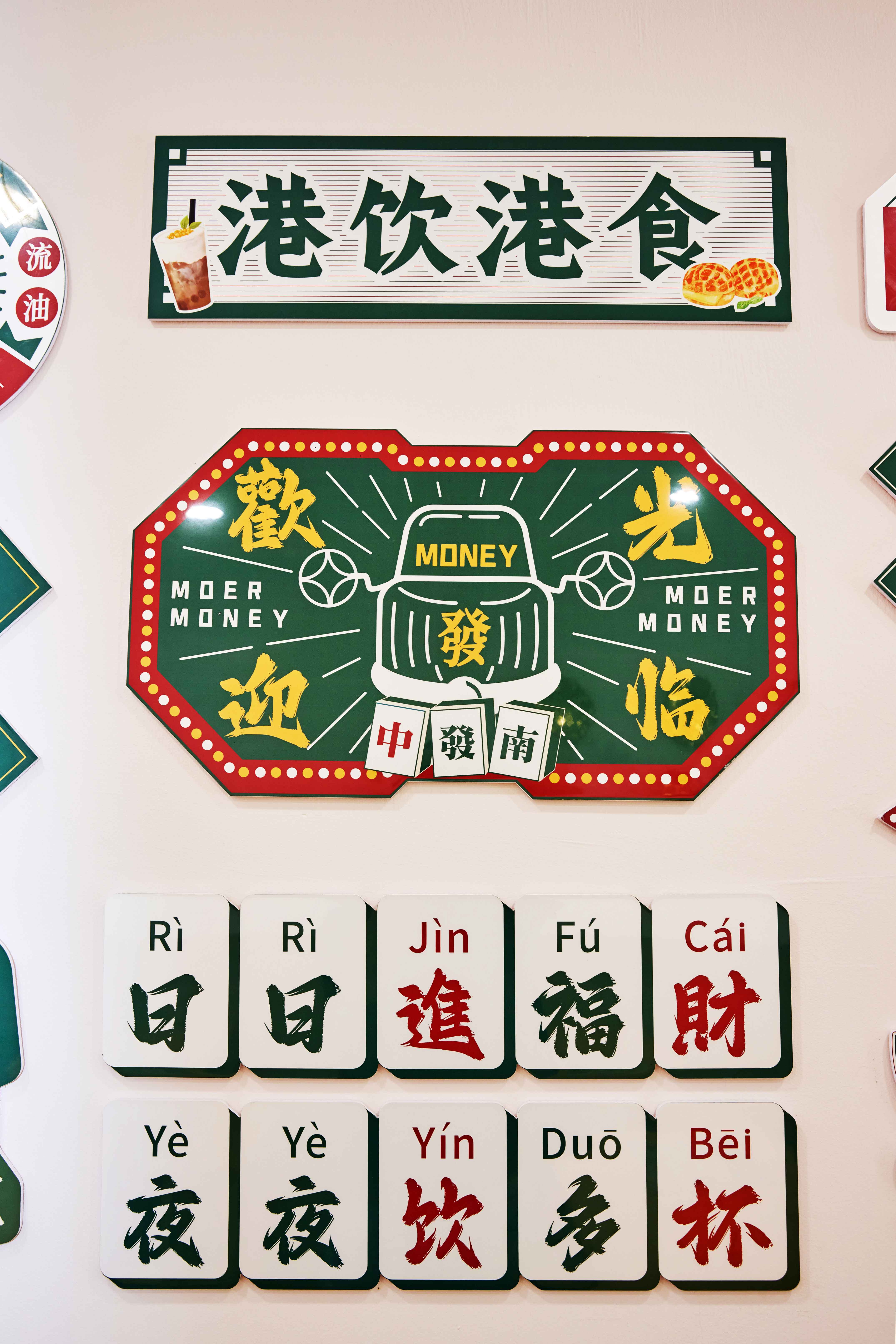
Clement tells us that the peak period to buy durians this season will be around the second week of July. According to him, “the supply this season will be high, so prices are expected to be cheaper”.
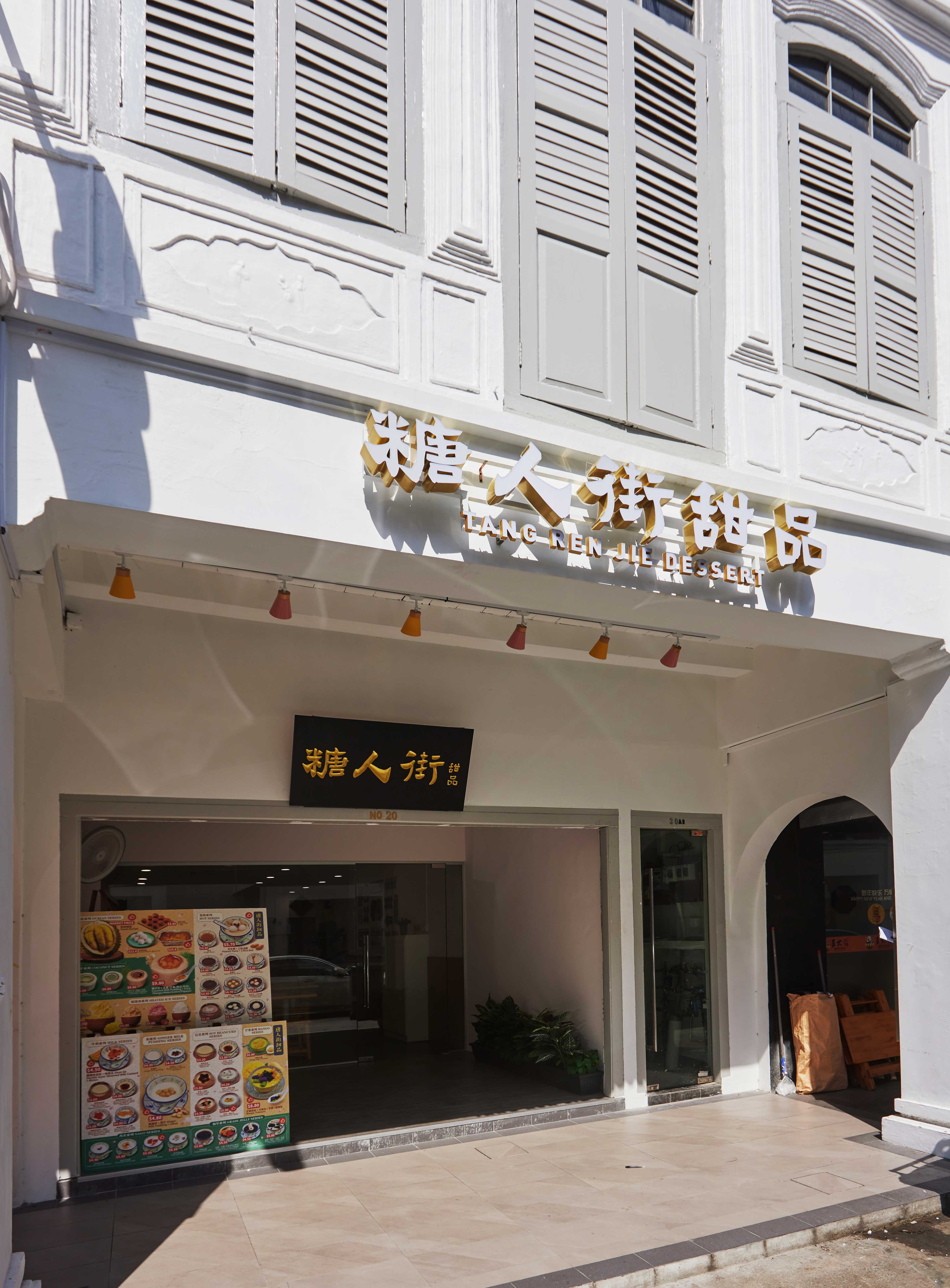
Here’s a pro-tip on how to choose the best durians: “To spot if the fruit is fresh, look at the stem. Fresh MSW has a slightly damp stem, while an unfresh one will have a dry and shrunken stem,” Clement shares. To tell apart MSW from other durians, he notes that the former has a distinct star shaped base, and a brown ring around the bottom of the stem.
Frozen MSW puree from Clement’s fam’s plantation
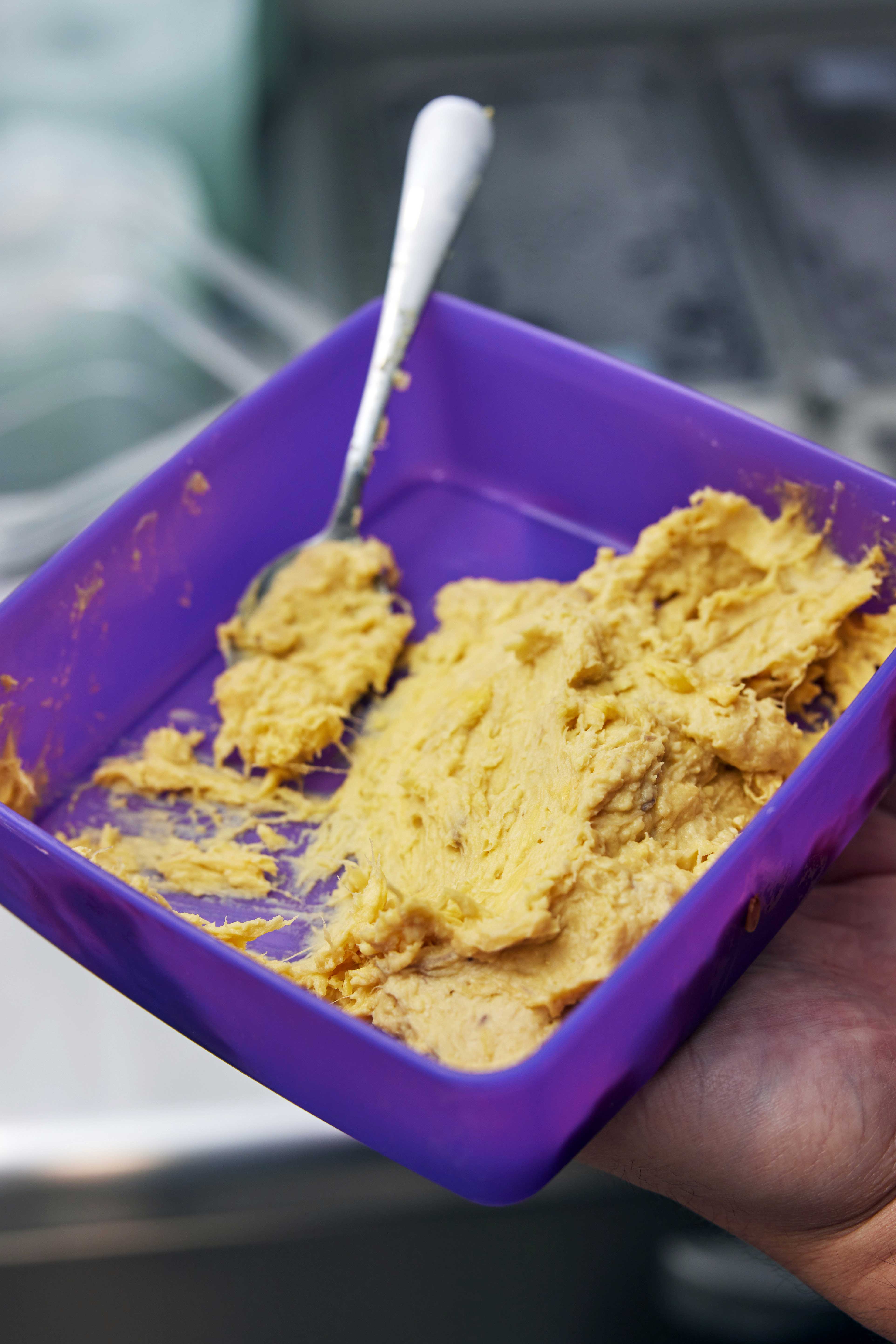
The Singaporean and his family reside here, while a relative who lives in Malaysia oversees the operations across all their durian plantations. His dad also travels down frequently to monitor the business.
Bentong ginger
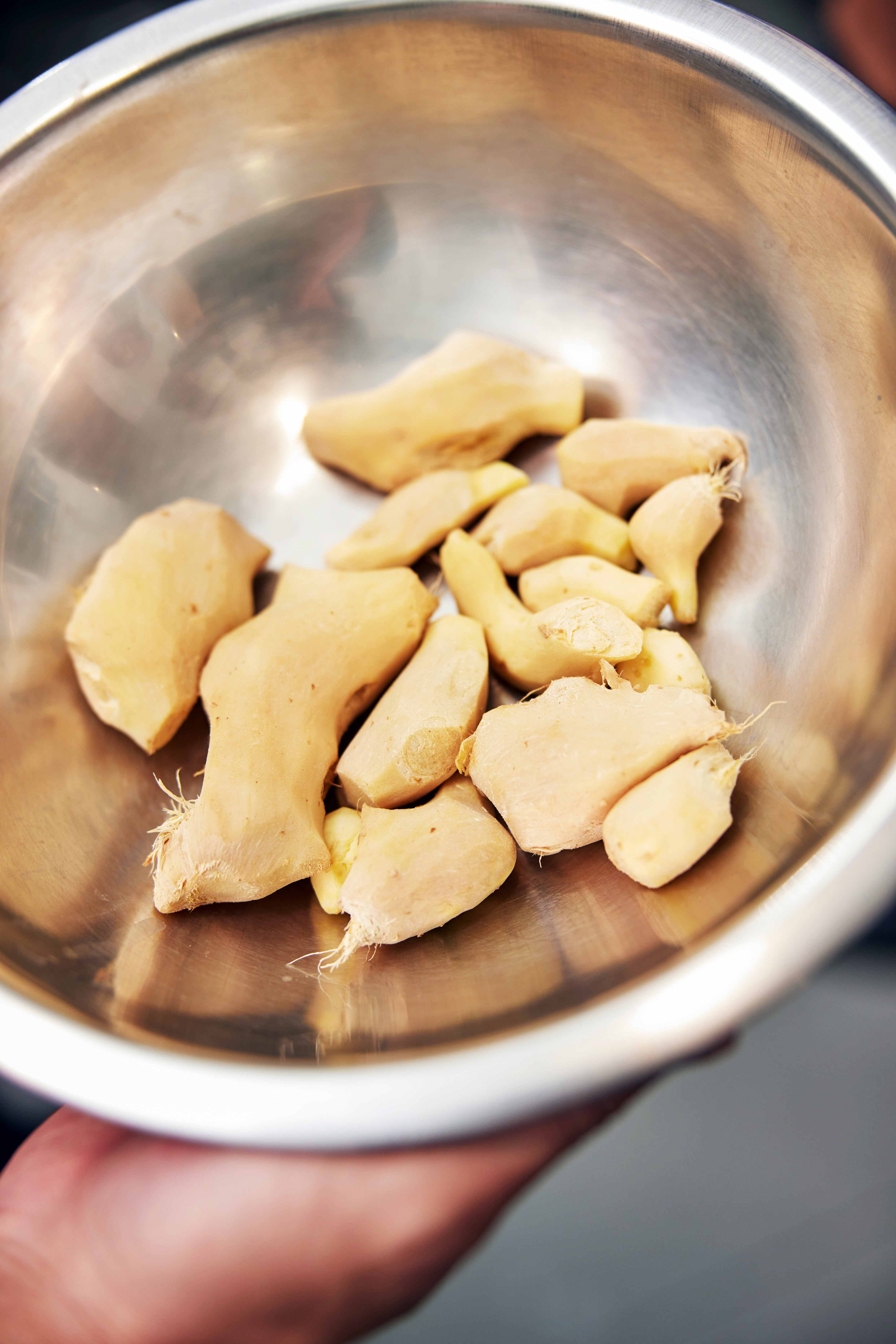
Family also grows premium bentong ginger, which is used in desserts here
Though durians make up the bulk of their plantations’ yield, Clement tells us that they also grow bentong ginger, a top-grade ginger from Malaysia. What’s the difference between bentong and regular ginger? “It’s way spicier than regular ginger, so a lot of people would say that bentong ginger is one of the best gingers,” Clement says. This is also used in some of his desserts here.
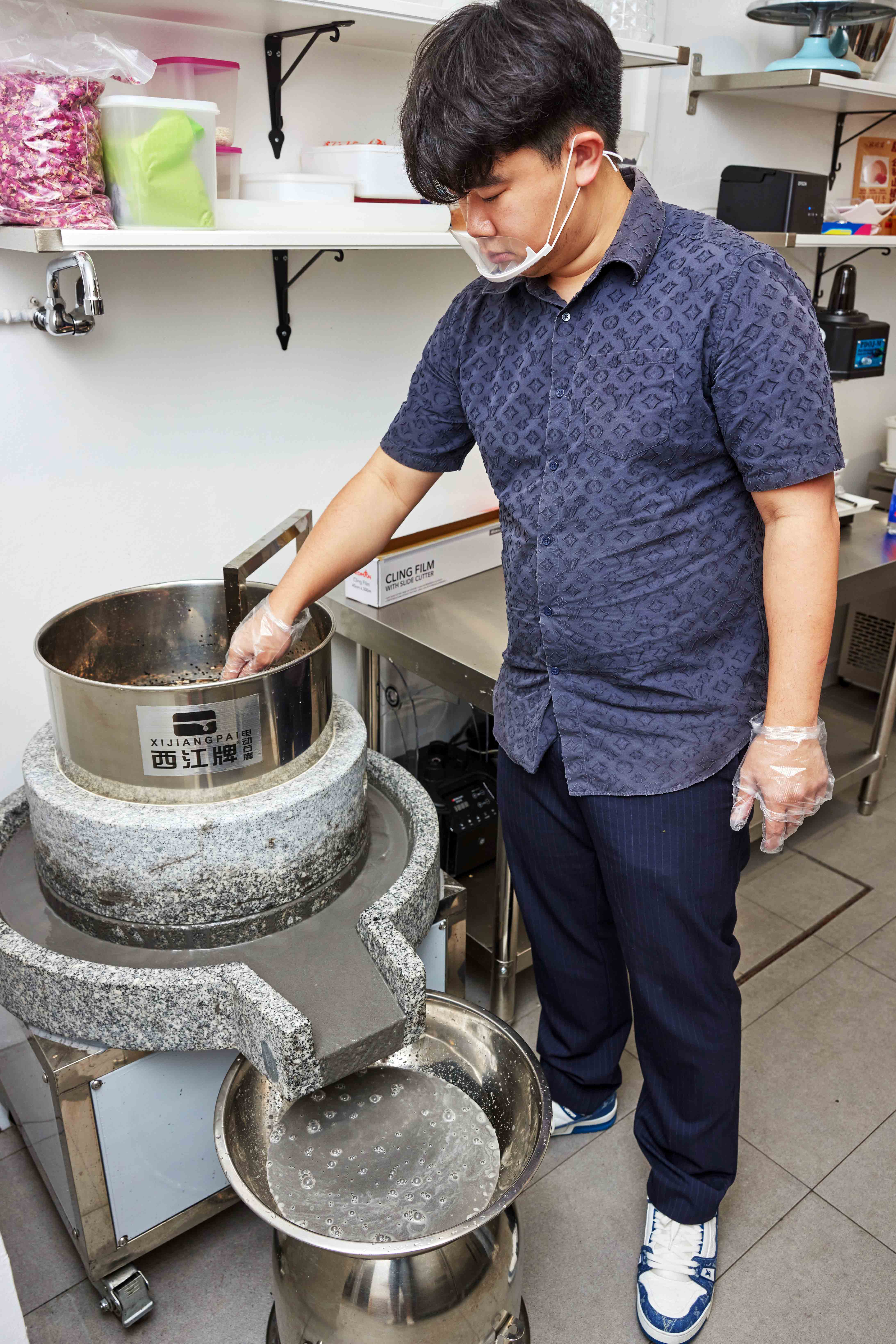
Learned how to make authentic desserts in Guangzhou
In order to transition from durian seller to dessert shop owner, Clement and his team of six staff underwent a two-week long dessert-making course in Guangzhou, China. He got the idea to pick up dessert making as he knows a chef who owns a cooking school there (he declines to name which one).
“I genuinely have an interest in cooking, that’s why I went to Guangzhou to learn. The lessons were in a classroom setting, from 7am to 5pm daily. After 5pm we would go to different places to try desserts,” he shares.
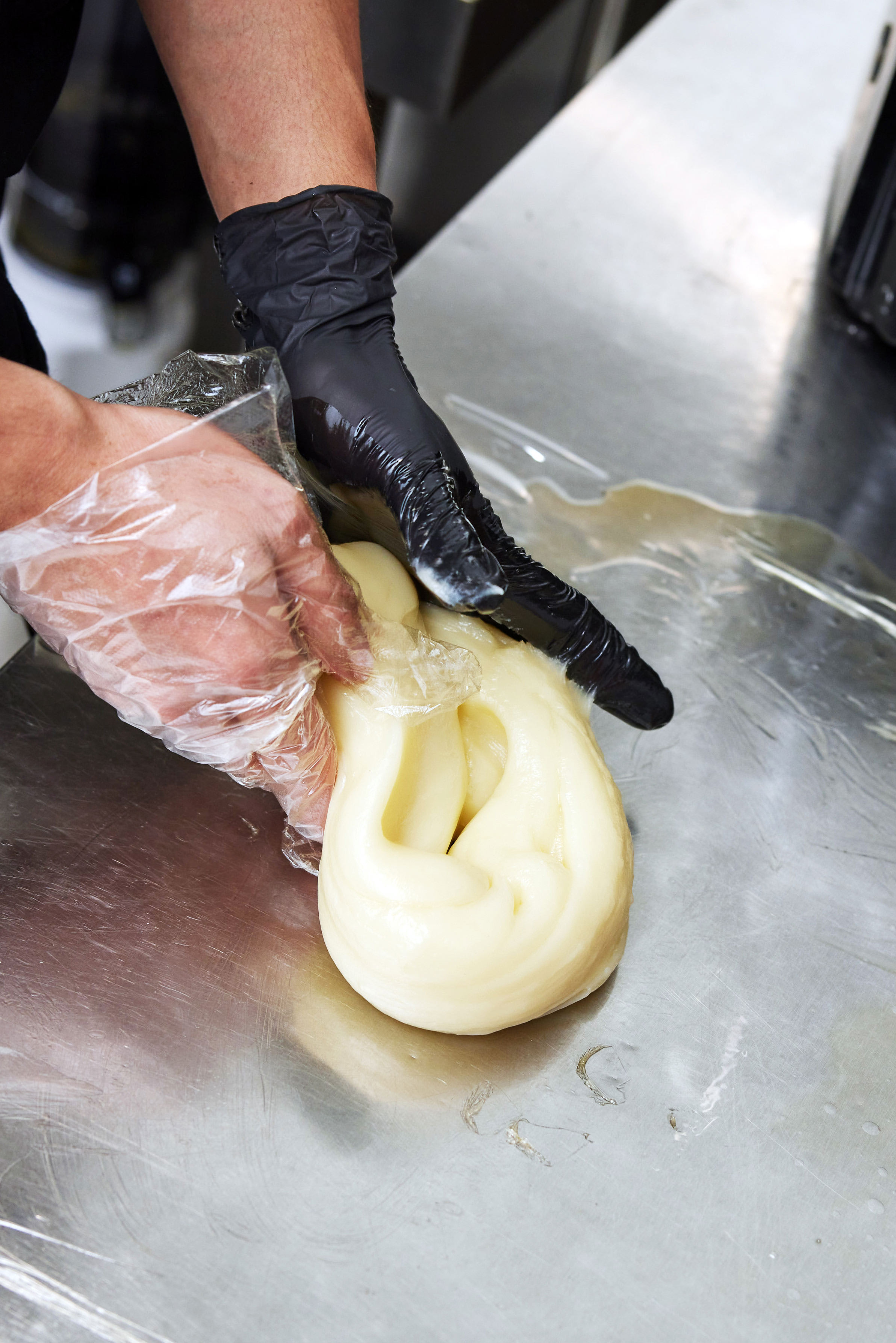
At Tang Ren Jie, Clement and his staff continue to make their desserts from scratch. From 7am everyday, they grind their own black sesame paste using an electric stone mill for their black sesame desserts and hand-make batches of fresh mochi using glutinous rice flour.
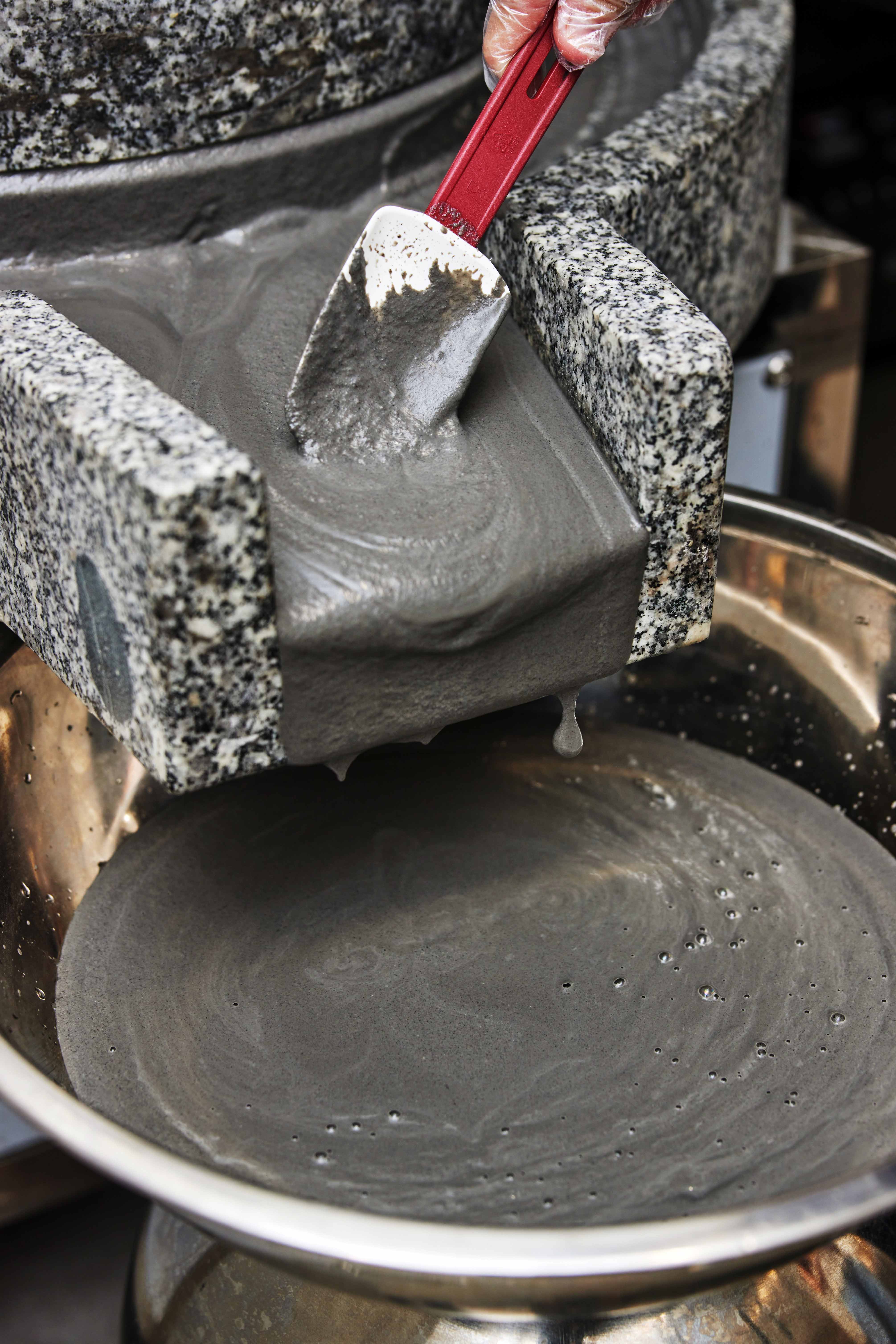
House-ground black sesame paste
“It does cost more in terms of labour and preparation time, however we felt like giving customers the best,” says Clement.
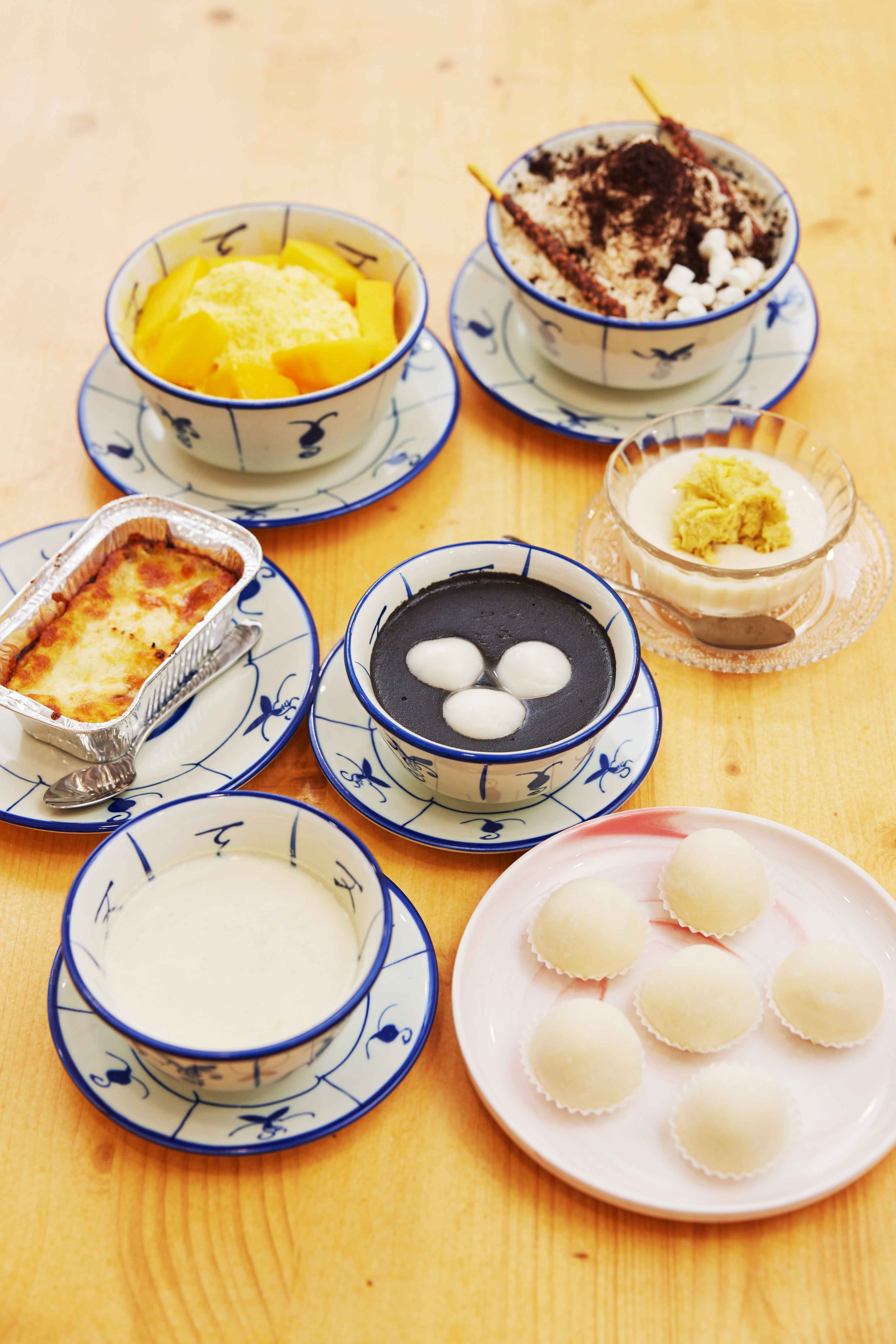
The menu
Tang Ren Jie sells a total of 47 desserts, four of them starring Mao Shan Wang durian: Baked Durian ($10.80), Durian Mochi ($12.80), Durian Puff ($3.80) and Soy Beancurd with MSW ($5.80). More typical Chinese desserts include Red Bean Soup with Three Rice Balls ($5.20), Ginger Milk Pudding ($4.20) and Shaved Ice ($9).
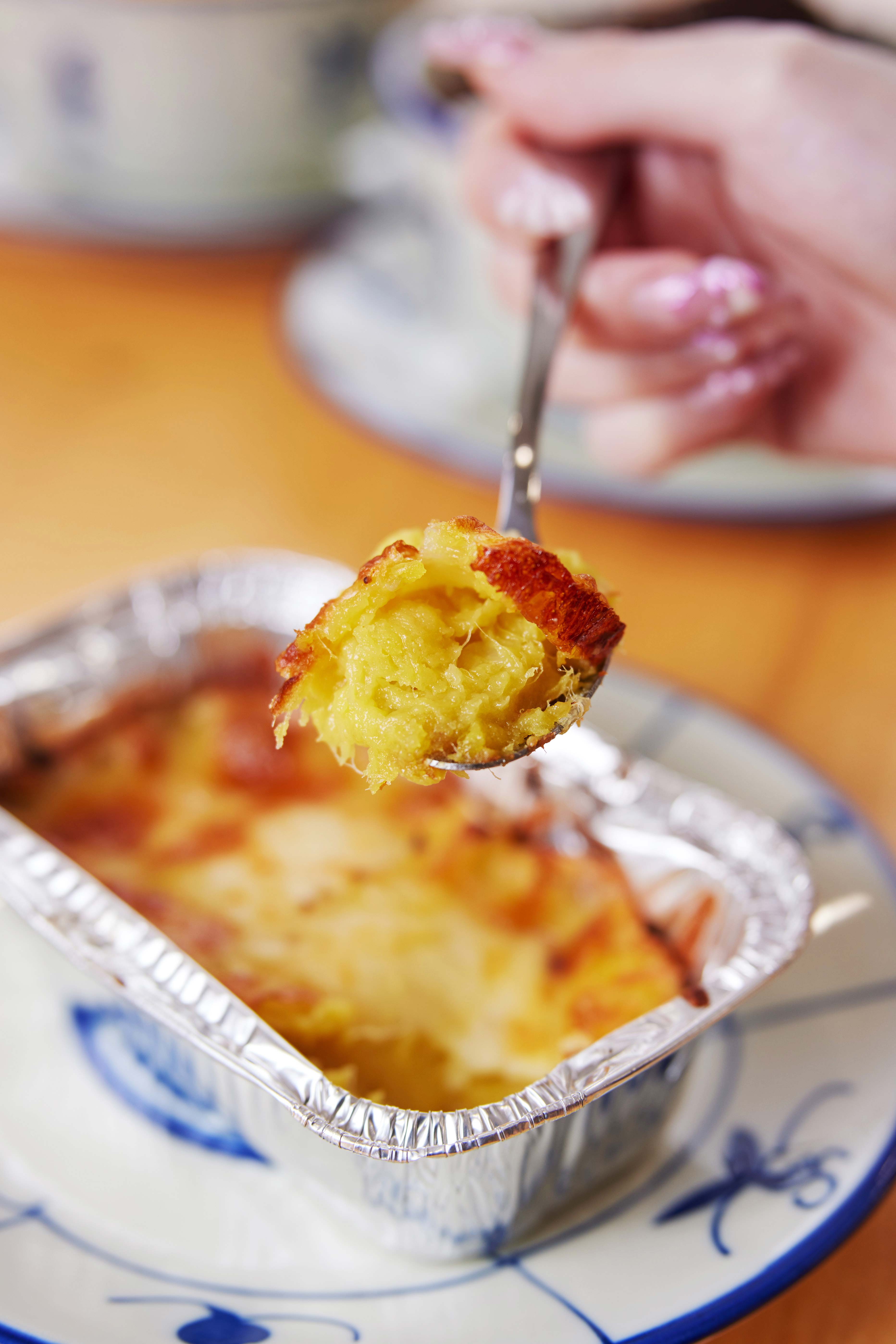
Baked Durian, $10.80 (8 DAYS Pick!)
This unique dessert is made up of unadulterated Mao Shan Wang durian puree sprinkled with grated mozzarella, cheddar and parmesan cheese, then baked till golden-brown. The smooth puree is lightly sweet, with a hint of bitterness that goes unexpectedly well with the chewy, salty cheese layered atop. Neither the cheese nor durian flavours are overpowering, which made this an easy dessert to get through without tasting too jelak. Kinda like a chunkier, more pungent crème brûlée. Worth a try if you’re a durian lover.

Soy Beancurd with MSW, $5.80
The house-made beancurd here is silky, with an almost melt-in-the-mouth texture. It comes topped with a rather generous dollop of MSW puree that is milder than the freshly-cracked open stuff (they use frozen puree here), but still quite yummy. The milkiness of the beancurd pairs well with the creamy, slightly bitter puree.
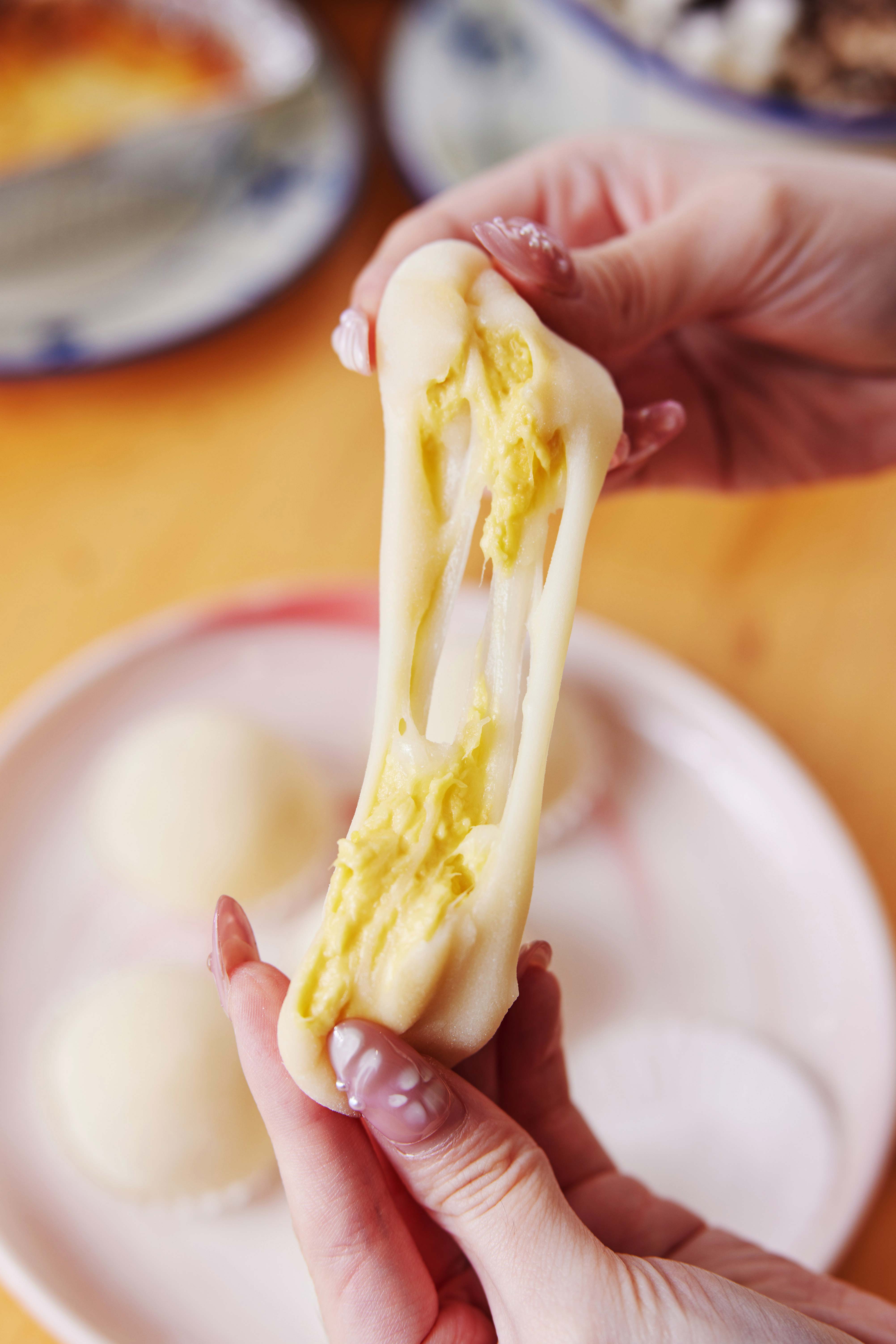
Durian Mochi, $12.80
Our fresh batch of mochi has a decent dough-to-durian ratio. It’s springy and chewy, and stuffed with pure MSW puree that’s again mildly bittersweet. Quite yummy.
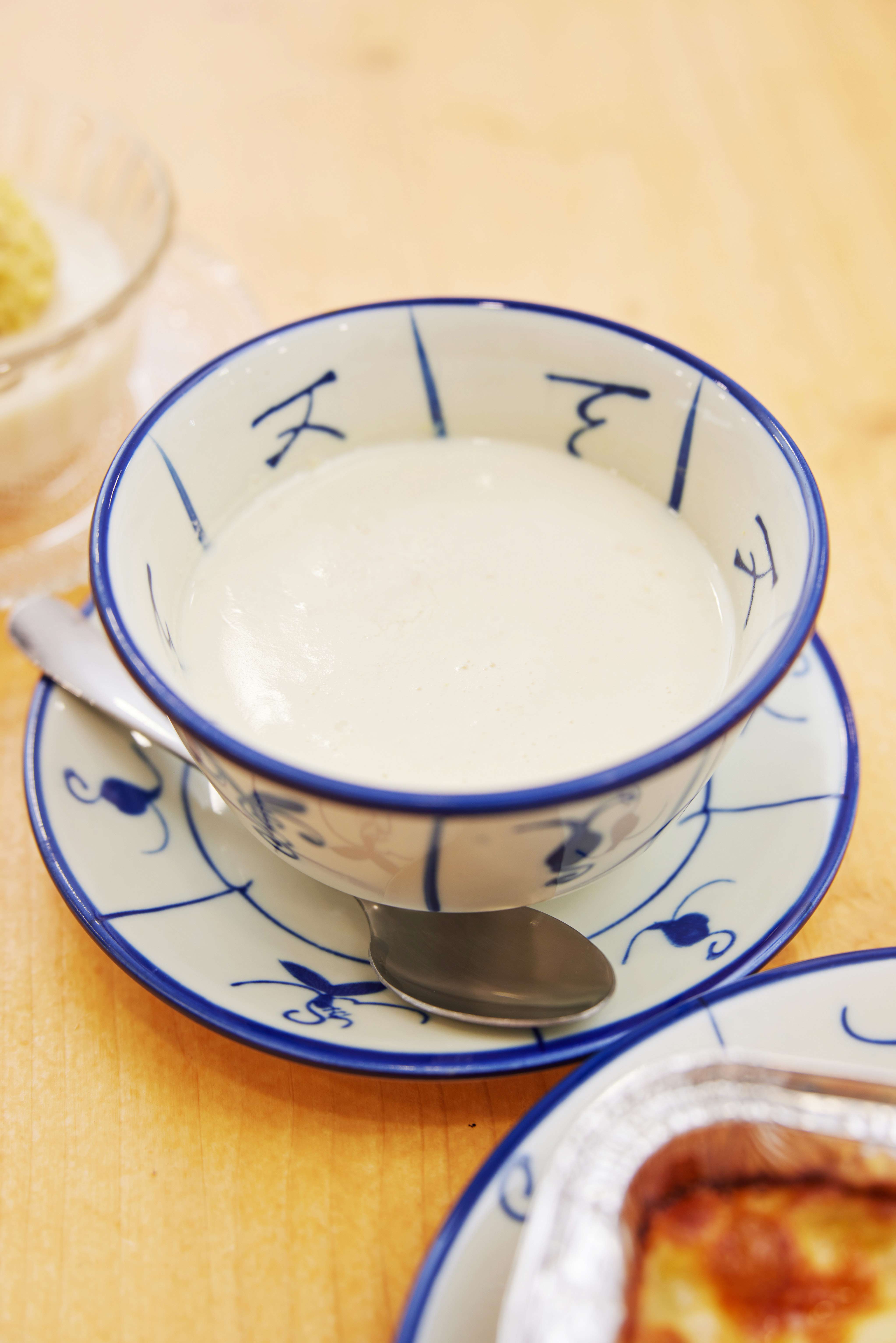
Bentong Ginger Milk Pudding, $4.20
Oozing with ginger juice, the warm, wobbly milk pudding here packs a spicy punch. A puddle of ginger juice is added to the bottom of the bowl, then topped with a blend of milk stirred with more ginger juice and steamed. Though the flavour is a bit too strong for us, we think ginger fans would appreciate the spiciness of the more fragrant than usual bentong ginger.
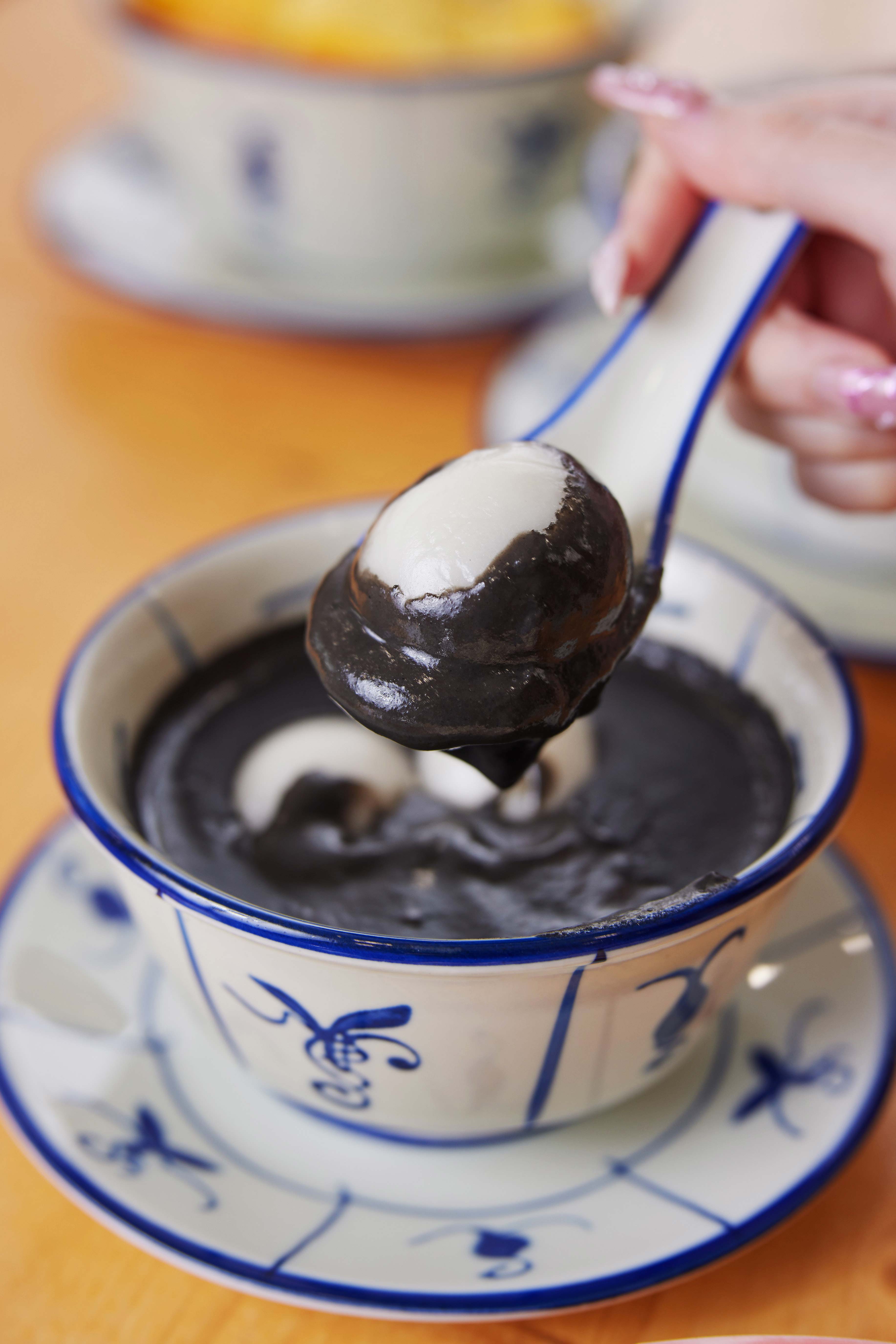
Black Sesame Paste with Three Rice Balls, $5.70 (8 DAYS Pick!)
Our house-ground black sesame paste is nuttier and thicker than usual with a slightly gritty mouthfeel. Pretty wholesome tasting and delish with the plump and chewy store-bought sesame tang yuan.
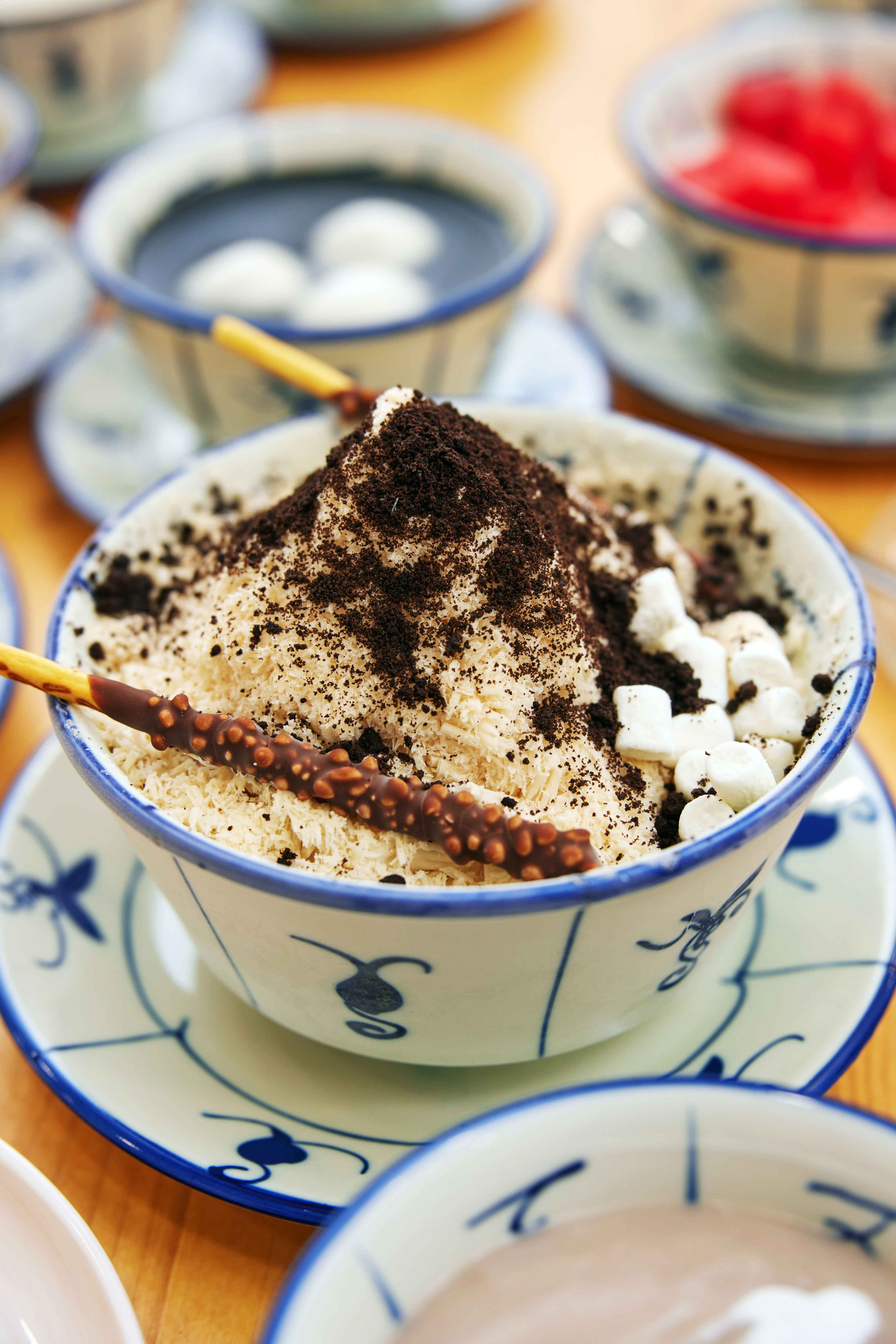
Peanut Butter Shaved Ice, $9
Clement tells us this dessert is popular with kids, and we can see why. Our bowl of shaved ice is studded with marshmallows and chocolate Pepero sticks, which add fun contrasting textures to the smooth, creamy ice flavoured nicely with peanut butter.

Mango Shaved Ice, $9 (8 DAYS Pick!)
Like the peanut butter option, our mango shaved ice is milky and velvety. But this one is far more refreshing, since the ice itself is flavoured with tangy-sweet mango juice, then scattered with chunks of juicy fresh fruit.

The details
Tang Ren Jie Desserts is at 20 Mosque St, S059500. Open daily except Mon 11am – 10.30pm. Tel: 8876 8808.
Photos: Kelvin Chia, Clement Tan, Gwyn Lim
No part of this story or photos can be reproduced without permission from 8days.sg.
8days.sg is now on #tiktok! Follow us on www.tiktok.com/@8dayseat

